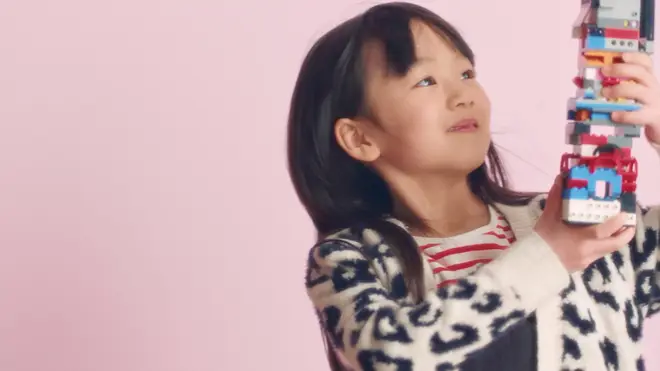
Ian Payne 4am - 7am
11 October 2021, 16:43 | Updated: 11 October 2021, 16:45

Lego has pledged to remove “gender bias and harmful stereotypes” from its toys after a survey found there are uneven attitudes to play among boys and girls.
The toy giant said it will “make play more inclusive” by ensuring children’s creativity is “not limited by gender stereotypes”.
Professor Gina Rippon, author of The Gendered Brain, said she "applauds" the decision, telling LBC's Shelagh Fogarty today: "Anything that removes that pressure from toys, and toy marketing, I really do welcome."
It comes after the research, commissioned by Lego itself, suggested girls “remain held back by society’s ingrained gender stereotypes as they grow older”.

Expert shares findings of report into gendered stereotyping
The study, carried out by the Geena Davis Institute, found “society isn’t quite ready to support [girls’] growth through play”.
For example, the research – in which nearly 7,000 parents and children aged six to 14 were interviewed – suggested:
- 74% of boys versus 62% of girls believe some activities are just meant for girls
- 82% of girls versus 71% of boys think it’s OK for girls to play football and boys to practice ballet
- Parents are six times as likely to think of scientists and athletes as men than women
- Parents are eight times as likely to think of engineers as men than women
- 71% of boys versus 42% of girls say they worry about being made fun of if they play with a toy typically associated with the other gender

James O'Brien reflects on gender neutral aisles in toy shops
In an announcement on Monday, Lego said it will “ensure Lego products and marketing are accessible to all and free of gender bias and harmful stereotypes”.
On its UK website, products are listed by theme and age – but not gender.
Read more: James O'Brien: 'What on earth is wrong with gender-neutral gear?'
Julia Goldin, chief product and marketing officer at Lego, said: “The benefits of creative play such as building confidence, creativity and communication skills are felt by all children and yet we still experience age-old stereotypes that label activities as only being suitable for one specific gender.
“At the Lego Group we know we have a role to play in putting this right, and this campaign is one of several initiatives we are putting in place to raise awareness of the issue and ensure we make LEGO play as inclusive as possible.”